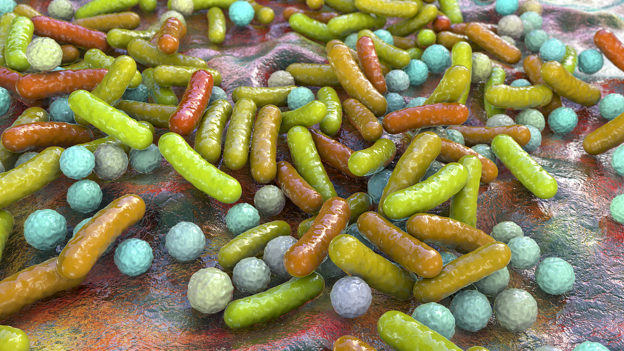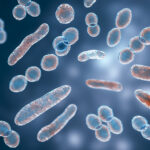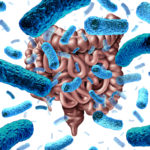By David Blyweiss, M.D., Advanced Natural Wellness
November 30, 2020
Viruses aren’t always the bad guys…
Recently, I talked about the fascinating ways viruses have actually helped humans over time.
Today, I’d like to tell you about a specific type of virus that lives in your gut microbiome. Understanding how to manage this virus may be the key to warding off chronic disease.
As you’ve heard me say before, our gut microbiome is an incredible thing. It contains a huge amount of genetic information. These codes have been passed down from generation to generation.
In fact, there are 100 times more genes in our gut microbiota than in our actual human genome. And our gut has over 300 times more protein coding DNA than our own human DNA! [1]
This is big news. It means that the health of your gut can have a large impact on your body’s overall function.
MD Exposes the Hidden Danger to Your Eyes

When your eyesight starts to fail, it's a real problem. Suddenly you can't go to the grocery store... you can't get to the doctor if you have an emergency... you can't meet your friends for dinner…
Your "regular" doctor doesn't have time to keep up with the latest research. And the same goes for eye doctors. They go to school to learn how to fit you for glasses and contacts, but have no way of preventing the damage and loss of eyesight that threatens your freedom and independence.
Let me show you something that explains a LOT about how your eyes work.
In my FREE Special Report, I'll show you a HUGE, untapped resource for your eyes that safely and naturally restores clear, effortless eyesight.
Click here to get started...
This Gut Virus is No Friendly Neighbor
Now, let’s get back to that gut virus I mentioned… meet the bacteriophage.
This type of virus lives in your gut alongside all those good and bad bacteria types. The bacteria and viruses don’t always get along perfectly. But the two-way relationship causes them to continue evolving and changing over time. [2]This also happens in the ocean where bacteriophages outnumber the bacteria living there.
So, what determines the type and quality of gut microbiome you have?
The population of bacteria and viruses that live in your gut was originally given to you by your mother when you were born. If you were born naturally, you passed through mom’s birth canal and picked up parts of her vaginal and colonic microbiome. Then, while you were breastfed, you continued to gain different good bacteria as you grew that mom transported from her gut to her lymphatic system and then to her milk ducts to you.
If you were born via C-section you picked up the microbes from the practitioner and nurses in the delivery room as well the nursery staff. If you weren’t breast fed you didn’t get the usual microbes that come from your mother’s milk. Any antibiotics you were given at this early age removed other good bacteria. Unfortunately this can set you up for future chronic health issues like inflammatory bowel disease.Hence a good reason to eat mostly a plant based diet, fermented foods and probiotics if this is where your gut microbiome started.
By the end of your second to third year of life, the viruses and bacteria in your gut were similar to what would be found in a full-grown adult.[3]
These viruses and bacteria in your gut were with you as a young child. This is when all you wanted to do was sit outside and make mud pies. In fact, studies actually show that there was value in those pies.Dirt is the worlds solid reservoir of microbes…50 billion/teaspoonful and where nature’s antibiotics come from.
Kids who are “too clean” have more sensitivities and allergies because they haven’t been exposed to microbiota in the soil. [4] [5] In other words… every kid needs to eat a pound of dirt to be healthy!
While your gut microbiome – including viruses and bacteria – were growing, so was your cognitive development in concert with them. Researchers found that an evolving healthy microbiome is important for the development of the brain – especially areas of the brain that handle memory. [6]
Are You Suffering From...
- Love handles and a pot belly
- Romance that isn't what it used to
- Forgetfulness and inattention
- Low (or no) strength and endurance
- A sex drive that's shifted into neutral...or worse
If so...you may have Mature Male Burnout. Click here to discover more about this unique condition and what you can do about it.
My Top Recommendation for Gut Health
Now, as an adult, your gut microbiome is packed full of viruses and bacteria that both help and hurt your health. Those gut viruses – the bacteriophages — actually outnumber bacteria 10 to 1. And there are about one quadrillion of these viruses in your gut!
Gut bacteria live side-by-side with your gut viruses and are there to keep them in check. Beneficial bacteria who thrive on the right healthy diet keep “bad guy” viruses and yeasts from getting out of control.
As the owner of your own personal gut microbiome, you have a say in who wins this constant battle for domination. The right types of foods will help you manage your gut biodiversity.
Specifically, you should focus on eating:
- Fermented foods and vegetables
- Probiotic supplements
- Red wine and tea for their polyphenols[7]
Fermented foods are the best way to keep your digestive tract in good health. They should be traditionally made and unpasteurized.
Look for healthy options like: tempeh, kombucha, and fermented cabbage, turnips, eggplant, cucumber, onions, squash, carrots, coconut yogurt and natto (fermented soy).
All of these will supply “good guy” bacteria to your gut. They also provide a great source of vitamin K2 – which helps your body use vitamin D3 and calcium.
Just think, a two or three ounce serving of fermented organic vegetables contains 10 trillion beneficial bacteria. It also has 500 mcg of vitamin K2. Even the best quality probiotic supplements will only give you a fraction of these values.
Probiotics help to battle inflammation and regulate the growth of disease-causing bacteria. They also help produce vitamins, absorb minerals, and eliminate toxins.
All in all, managing the health of your gut microbiome is very important. These intestinal bugs actually make up 70% of your immune system![8]
So next time you enjoy a tall glass of kombucha with your evening meal (like I do), congratulate yourself on doing something great for your gut microbiome.
Sources:
[1] Hamady M, Knight R. Microbial community profiling for human microbiome projects: tools, techniques, and challenges. Genome Res 2009; 19:1141-52
[2] LuisaDe Sordi Cell Host & Microbe Volume 25, Issue 2, 13 February
[3] Dominguez-Bello MG et al, PNAS 2010
[4] Hamilton G. New Sci. 1998; 159:26-31.
[5] Rook GAW, Stanford JL. Immunol Today. 199; 19:113-116.
[6] Wall R, Marques TM, O’Sullivan O, Ross RP, Shanahan F, Quigley EM, et al. Contrasting effects of Bifidobacterium breve NCIMB 702258 and Bifidobacterium breve DPC 6330 on the composition of murine brain fatty acids and gut microbiota. Am J Clin Nutr 2012; 95:1278-87.
[7] Mercola.(2014, May 15). The Importance of Microbial Diversity in Gut Health and Disease). Retrieved from http://articles.mercola.com/sites/articles/archive/2014/05/15/microbial-diversity-gut-flora.aspx
[8] Vighi, G., et al. “Allergy and the gastrointestinal system.” Clinical & Experimental Immunology 153 (2008): 3-6.







